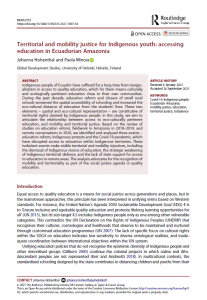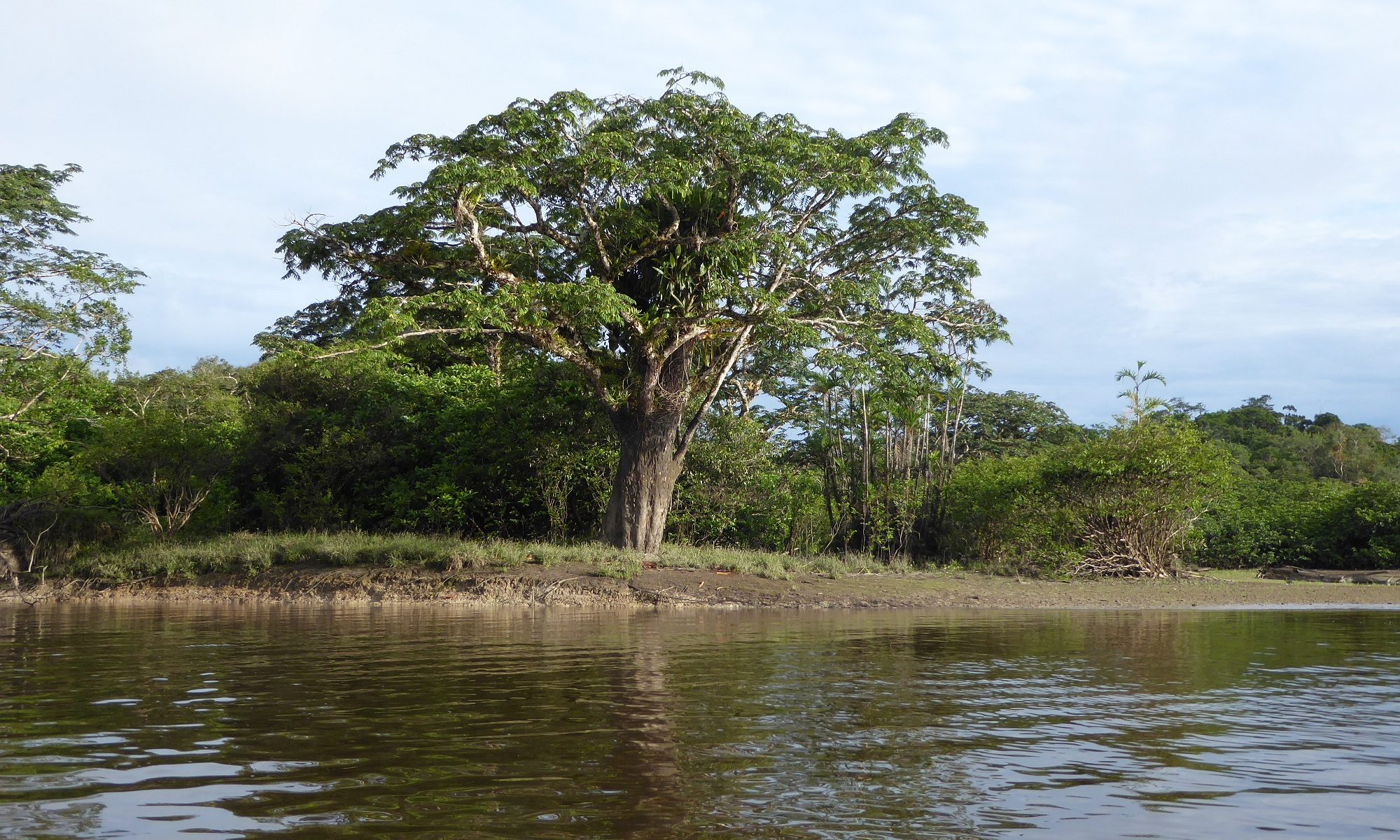 A new research article written by Johanna Hohenthal and Paola Minoia (with acknowledgements of the contributions of the whole ‘Goal4+’ research team) was just published (open access) in the journal Mobilities. The article aims to
A new research article written by Johanna Hohenthal and Paola Minoia (with acknowledgements of the contributions of the whole ‘Goal4+’ research team) was just published (open access) in the journal Mobilities. The article aims to
articulate the relationship between access to eco-culturally pertinent
education, and mobility and territorial justice. It suggests that the “accessibility of quality education should be interpreted as the exercise of the right to education encompassing ecological, cultural and linguistic diversities, and supporting the identities, emplacement and territorial control of Indigenous people.” This definition of accessibility includes three important dimensions: the eco-cultural pertinence of education, spatial proximity and sustainable mode of school travel. The argumentation of the article is based on an analysis of ‘turbulent’ events that have disrupted educational mobility and access to education within the Indigenous territories in the Pastaza province of Ecuador: 1) an education reform that began during rule of the President Rafael Correa in 2011, 2) Indigenous protests linked to territorial struggles, and 3) the Covid-19 pandemic.
The article concludes: “Above all, the realisation of both mobility and territorial justice means the opportunity to make sustainable life choices that do not force uprooting of Indigenous people from their territories but allow access to education and thus participation in the wider society. In addition, mobility justice means the possibility to move in a sustainable way that allows the creation and maintenance of body-territorial connection and learning without damaging the environment. Territorial and mobility justice perspectives should be integrated into the social justice agenda of quality education globally. This would allow the emergence of reformative actions that move beyond the essentialised constructions of the social and educational disadvantages of the Indigenous areas and people, and instead, recognise the particularities of Indigenous places and mobilities and support Indigenous territorial strategies.”
Hohenthal, J. & P. Minoia (2021). Territorial and mobility justice for Indigenous youth: accessing education in Ecuadorian Amazonia. Mobilities (online). https://www.tandfonline.com/doi/full/10.1080/17450101.2021.1987154
